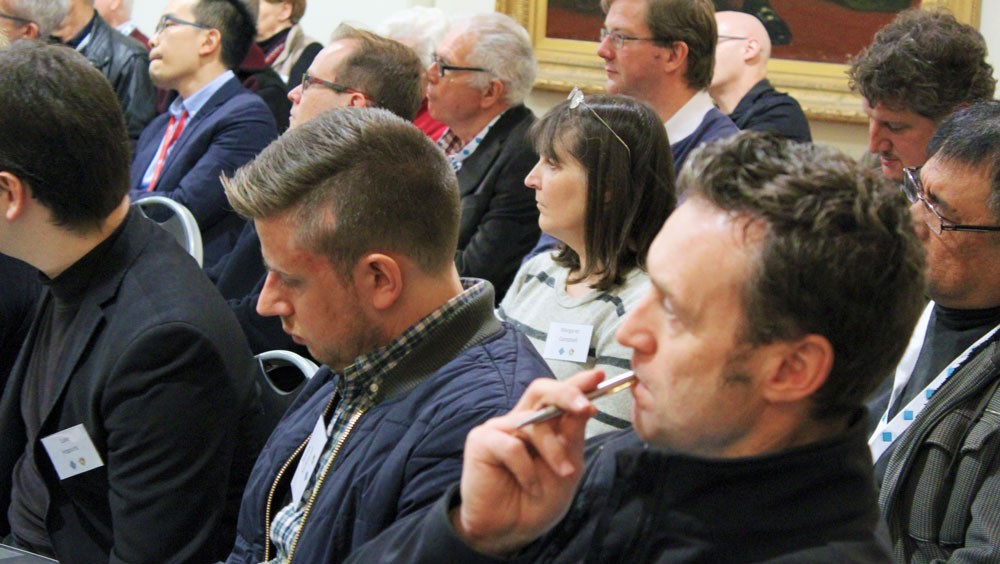The Karl Barth Study Group met for the second time at this year’s ANZATS Conference in Melbourne on July 4, 2016. This year six papers were presented at the Study Group meeting, an increase of three over last year’s meeting in Sydney. We also enjoyed more participants in the sessions this year, with lively discussion and Q&A after each session. It was exactly what I hoped for when I floated the idea a couple of years ago.
The six presenters represented a variety of institutions in five cities and came from three countries. The papers were each distinctive and worthwhile in their own right. Some dealt with the official Conference theme (Atonement) while others ranged further afield. Together they displayed the broad interest Barth continues to excite in the Asia-Pacific region. In brief the presenters and themes addressed were as follows:
- Michael O’Neil – Vose Seminary, Perth
Title: “Changed into Another Man: The Meaning of ‘Baptism with the Holy Spirit’ in Karl Barth, in Conversation with the Pentecostal Doctrine.”
My paper was a briefer version of the paper I gave at the 2016 Barth Conference in June at Princeton. I argue that Barth and Pentecostals have plenty to talk about, and that both might learn something from each other. Barth describes the life of one baptised with the Holy Spirit: “The power of the life to come is the power of his life in the world.” - Edmund Fong – PhD Candidate (Otago University), Singapore
Title: “‘For Us and in Our Place’: The Doctrine of Atonement in Engagement with the ‘Reception of Doctrine’ Approach.”
Edmund explored the hermeneutical and trinitarian presuppositions which govern understanding of the atonement, before arguing that for Barth, the Deus pro nobis is the very Sache, the subject matter, of the doctrine of the atonement, which he unpacks in a fourfold substitutionary pattern. - Mark Lindsay – Trinity College Theological School, University of Divinity, Melbourne
Title: “Divine Forgetfulness and the Re-Creation of Memories: The Significance of the Sepultus Est.”
Mark’s fascinating lecture explored Barth’s meditation on the burial of Jesus in his Utrecht lectures of 1935, published as Credo. In his burial, Jesus surrenders to the human fate of becoming ‘pure past,’ thus no longer having either present or future. He becomes as though he were not, no more than a memory. Yet God opened a new future, and through him, ‘new futures.’ - Geoff Thompson – Pilgrim Theological College, University of Divinity
Title: “Reading Barth Reading Job.”
Geoff explored Barth’s reading and interpretation of Job in Church Dogmatics IV/3. Barth finds a certain correspondence between Jesus and Job such that Job functions as a witness of the True Witness who is Jesus Christ. For Barth, Job is not about theodicy or a meditation on suffering. He is rather a witness who speaks the truth and unmasks falsehood. - Christopher Holmes – University of Otago, New Zealand
Title: “The Atonement and the Holy Spirit”
Christopher’s careful lecture detailed the work of the Holy Spirit in the immanent trinity and the outworking of this role in the event of the atonement. The Holy Spirit can never be untethered from Jesus Christ either at the cross or unto all eternity, the Spirit and the Son are one, even in their distinction. - Chris Swann – PhD Candidate, Charles Sturt University, Canberra
Title: “Discipleship and the ‘Indirect Directness’ of Barth’s Account of Sanctification in Church Dogmatics IV/2, §66”
Chris responded to criticisms that Barth’s ethics are too abstract and indirect, arguing that Barth’s ‘indirectness’ is intentional, and intends to educate our moral imagination or tune our ears to hear and respond to the direct command of Jesus Christ.
